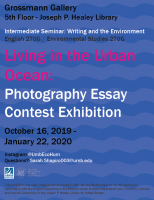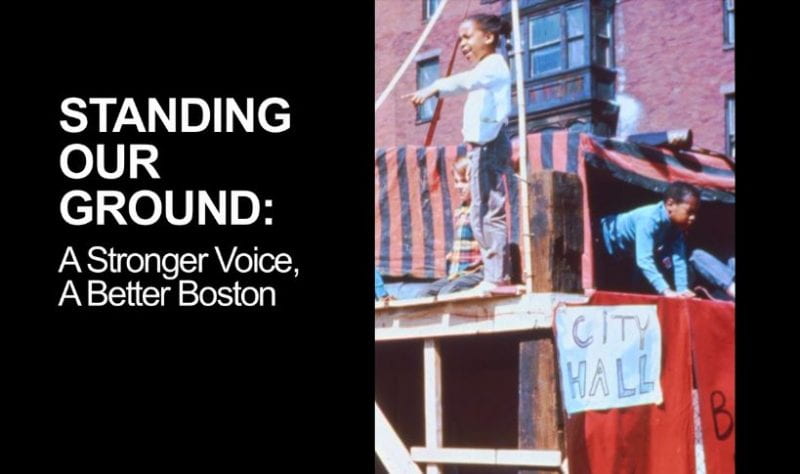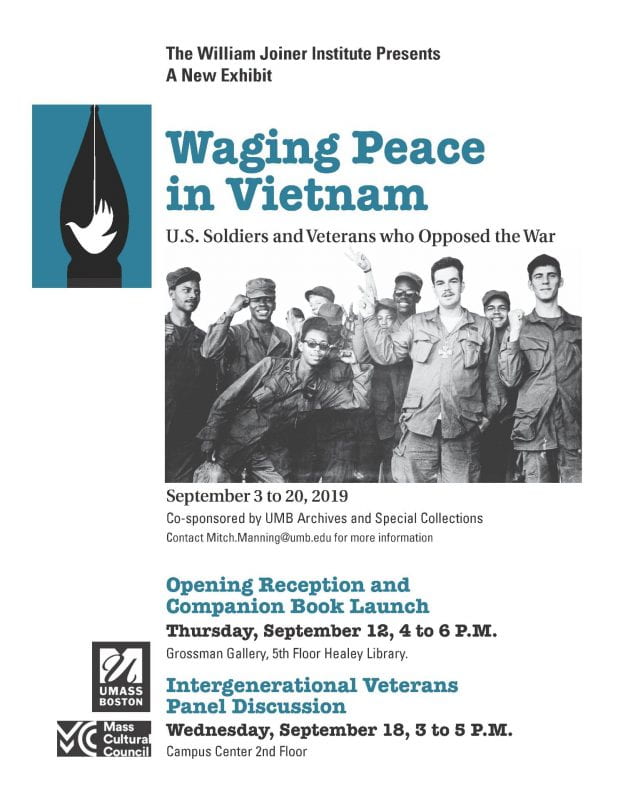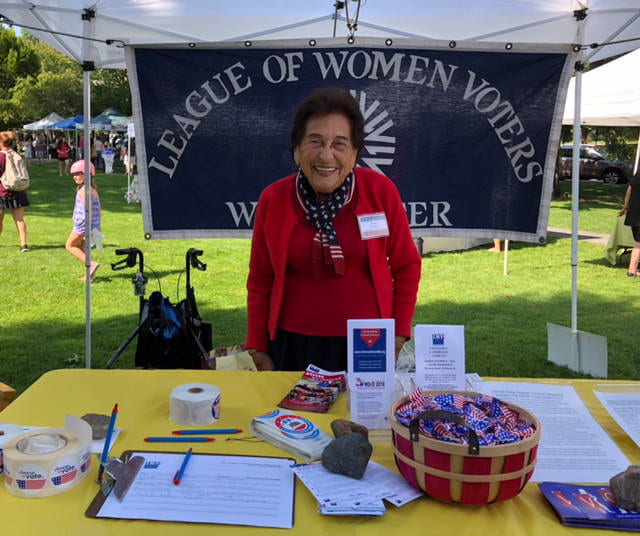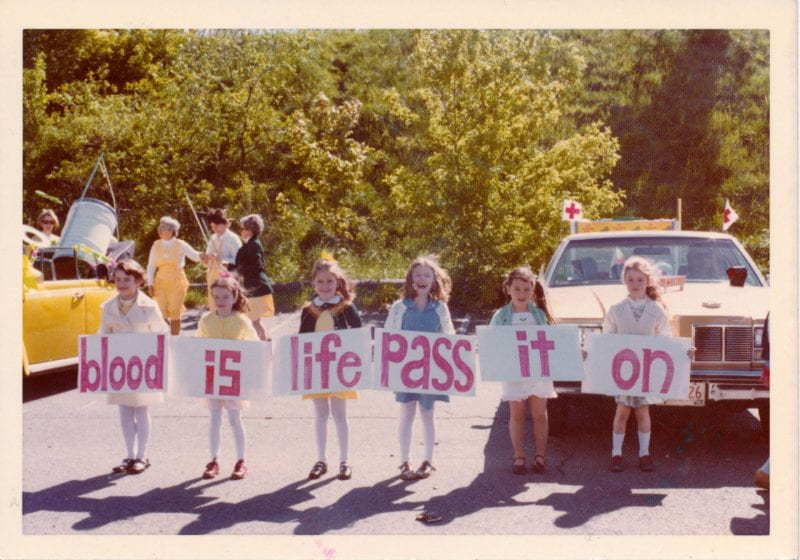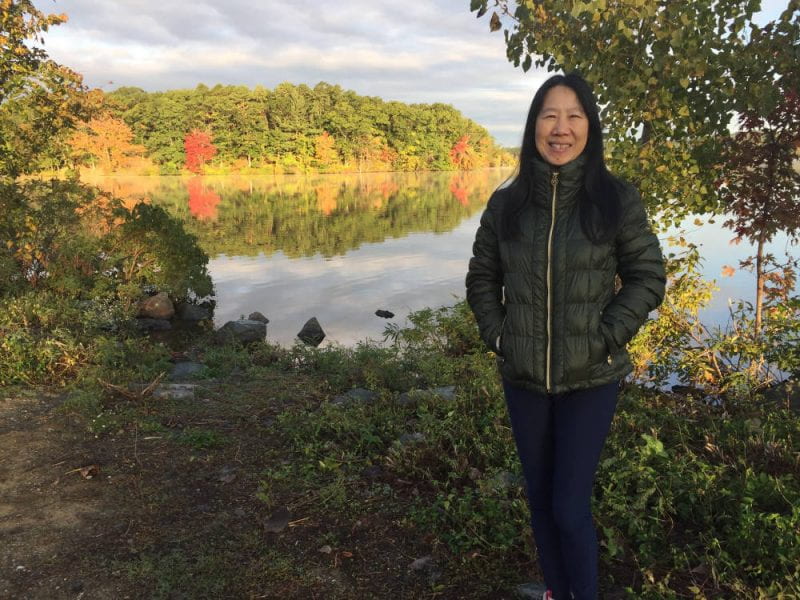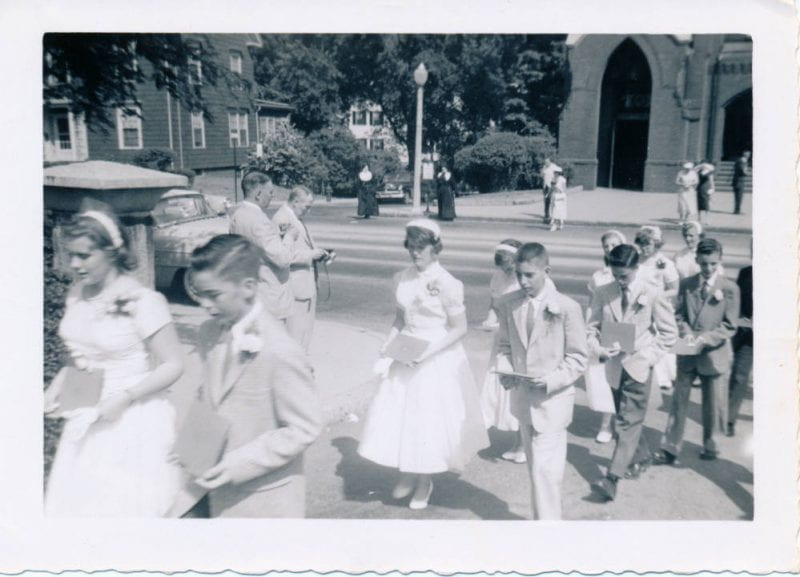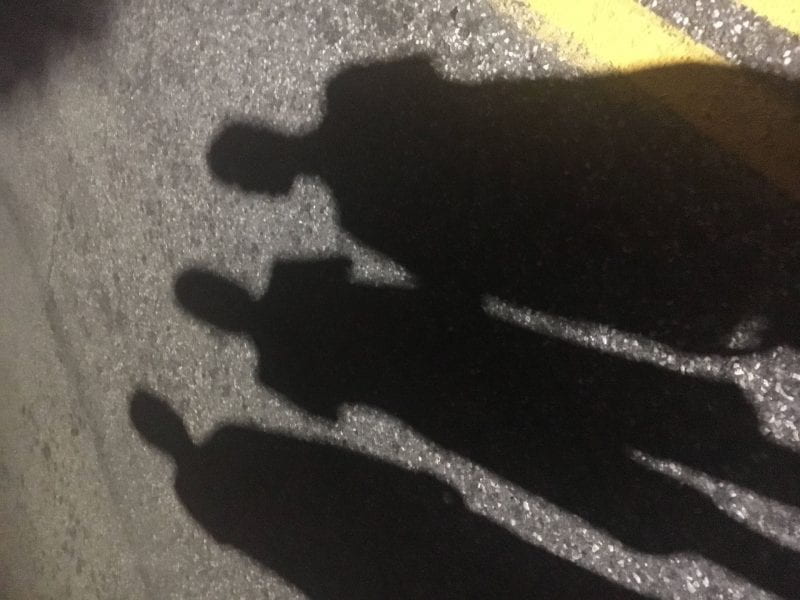Author: Kayla Allen, Graduate Assistant
The photographs, stories, and videos gathered at the Brockton Mass. Memories Road Show are available online now for research.
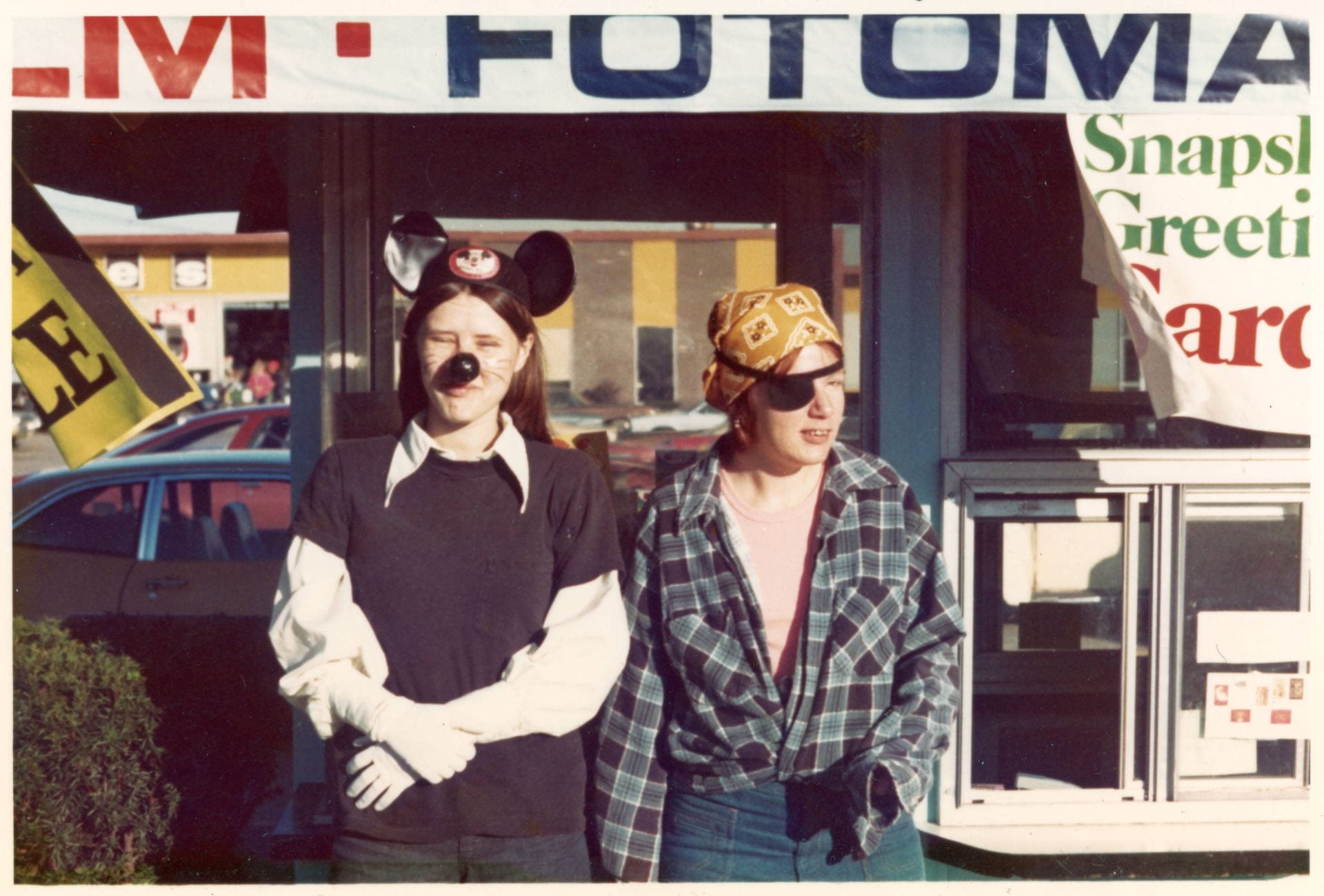
Halloween at Fotomat, 1970. ‘In college, I worked at Fotomat, a drive-through film developing store. In this picture, Connie who worked in the morning is dressed as Minnie Mouse and I am a pirate for Halloween. Pictured: Connie Tucker and Paula Jones.’ Contributor: Paula Jones.
Hosted by the Brockton Public Library on Saturday, May 18, 2019, the event was organized by the library in partnership with the Brockton Historical Society, the Brockton Area Branch National Association for the Advancement of Colored People (NAACP), Haitian American Citizens Aid, and the Brockton City Council. More than two dozen local volunteers joined a team of UMass Boston staff members, graduate students in public history and archives, and “Roadies” to welcome nearly 100 adults and children with connections to the large city located south of Boston.
Participants shared memories of important personal and family moments, including experiences immigrating to Brockton from places all over the world such as Haiti, Cape Verde, and Greece. The stories that they shared were full of love, loss, success, and hardship.

High school days, 1980. ‘My Brockton High School graduation photo from 1980. “Mo” was easier to pronounce than Moises. I emigrated from Cape Verde and had to assimilate into a massive high school. My first challenge was to learn English. It was a scary time for immigrants as there were not many services to help with blending into American culture. I didn’t even know what a prom was. 1200 students graduated in my class that year. I was the first in my family to graduate from high school. Pictured: Moises Rodrigues.’
Many individuals contributed stories about participation in activities at local schools such as Brockton High School, Southeastern Regional Vocational Technical High School, and Massasoit Community College. They shared senior and graduation photos, team photos, biographies, and images of technical projects.
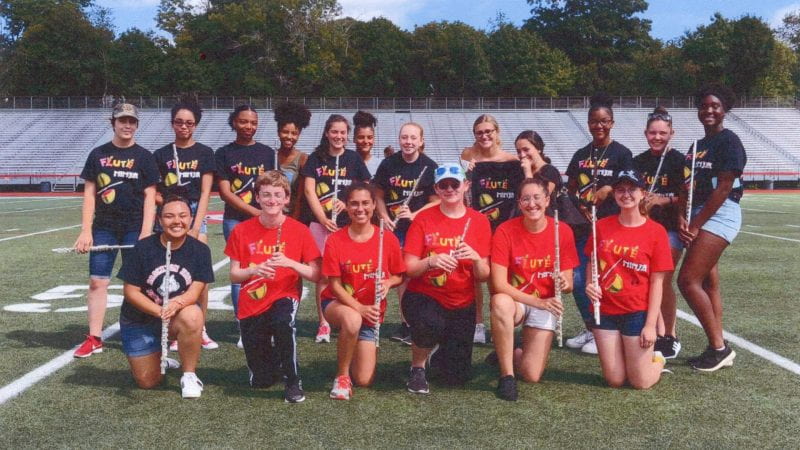
Flute section of Brockton High marching band, 2018. Contributor: Francesca DiMare.
Several contributors brought in images of the city’s civic, fraternal, and community organizations such as the local lodge for the Order of the Sons of Italy, the Frederick Douglass Neighborhood Association, the Brockton Visiting Nurse Association, and the Brockton Public Library.
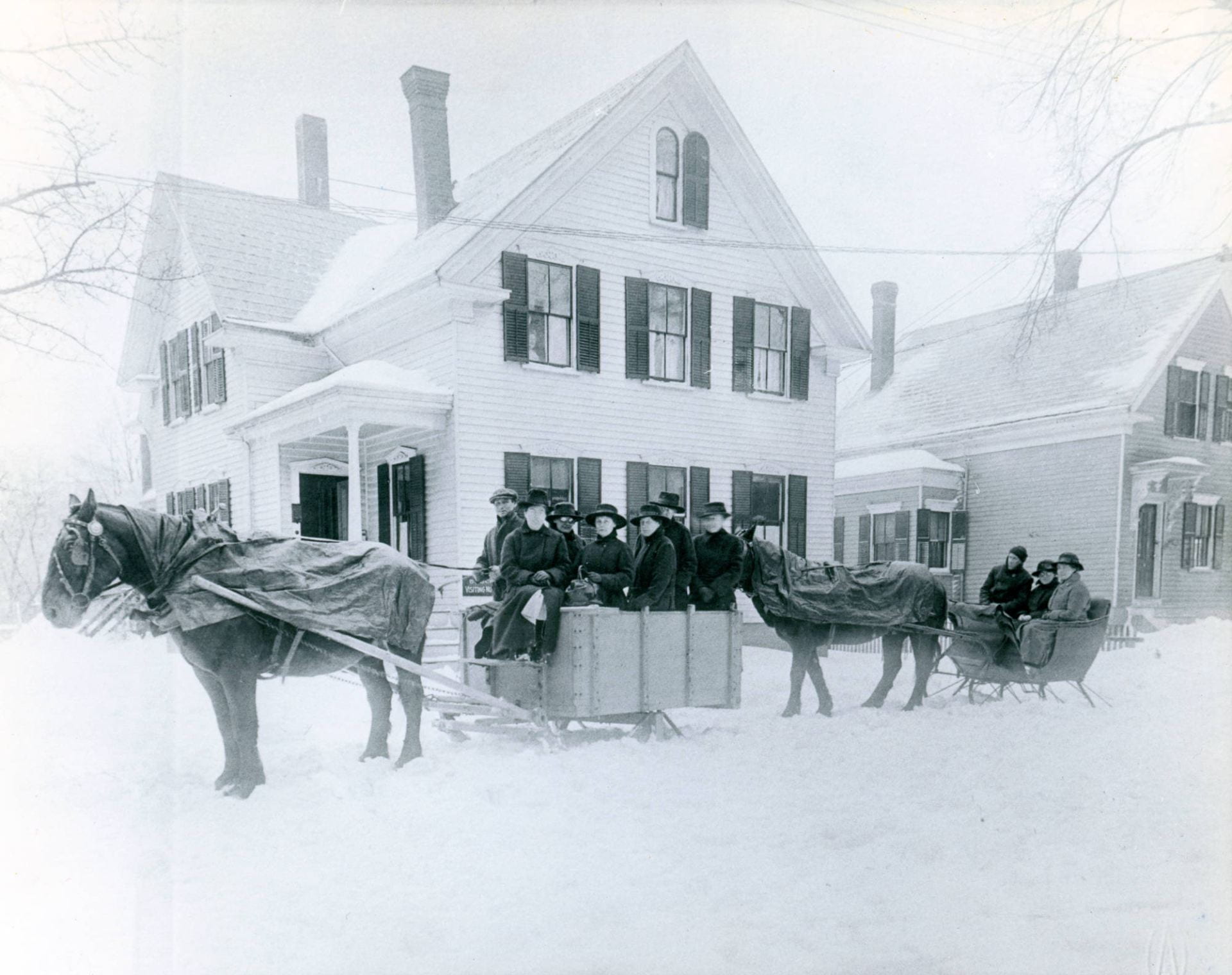
Nursing visits on Winthrop Street, 1920. ‘The Brockton Visiting Nurse Association (BVNA) nurses are being transported by sleds to make their visits. Photo taken in front of the family home of our State Senator Thomas Kennedy.’ Contributor: Margaret Mane.
Additional photographs and stories document the deep involvement that many Brockton residents have in their religious communities. Some of the many houses of worship that were documented during the event include the Greek Orthodox Church of the Annunciation, the Messiah Baptist Church, Our Lady of Ostrobrama, St. Theresa’s Maranite Catholic Church, and Central United Methodist Church.
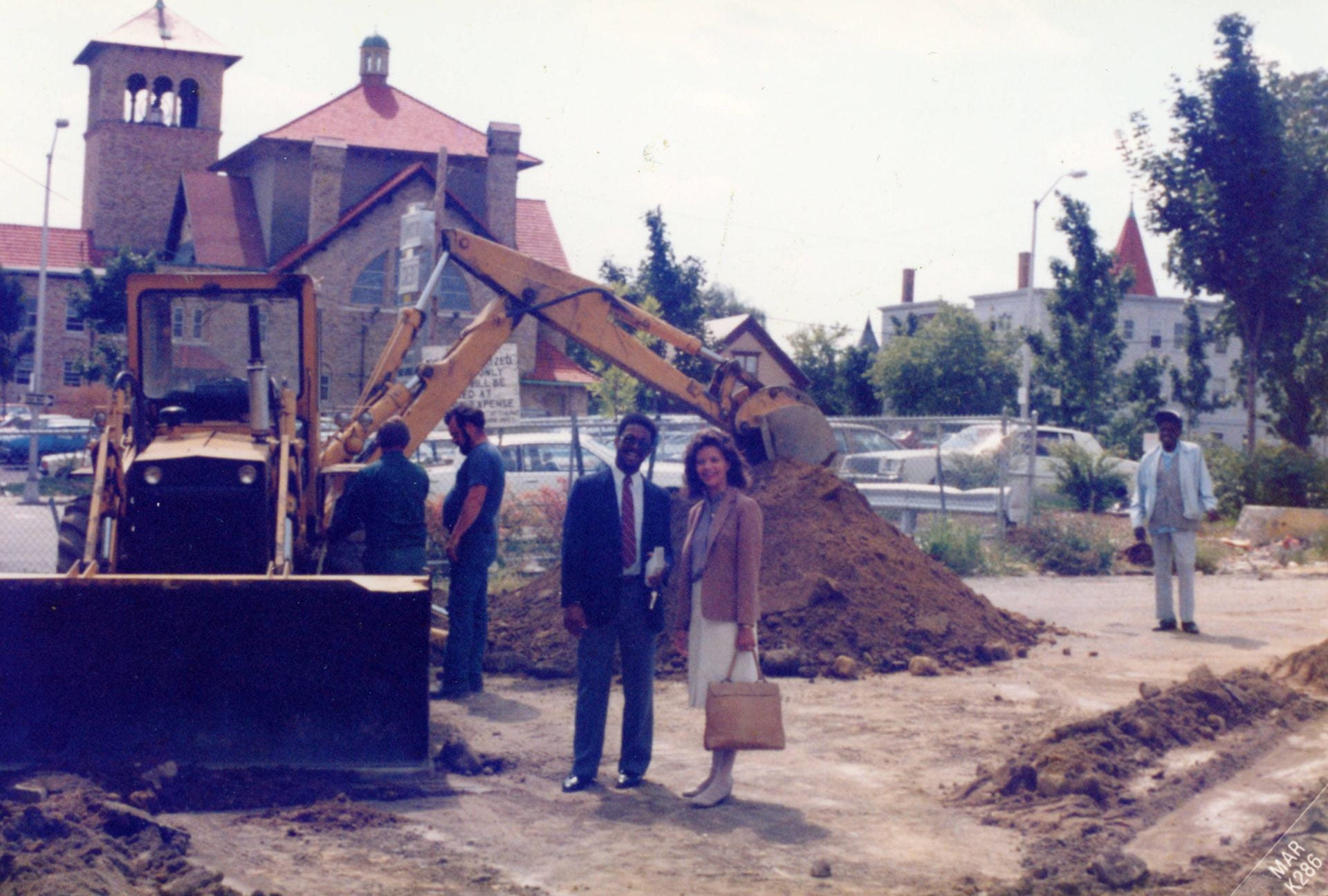
Construction of the new sanctuary of Messiah Baptist, 1984. ‘Messiah is building a new church that will be connected to the old church that was built in 1897. Pictured: Reverend Michael Walker and Paulette Walker. Location: Downtown.’ Contributor: Miles Jackson.
Browse the Brockton Mass. Memories Road Show collection.
The Mass. Memories Road Show is a statewide, event-based participatory archiving program that documents people, places and events in Massachusetts history through family photographs and stories. In partnership with teams of local volunteers, we organize public events to scan family and community photographs and videotape “the stories behind the photos.” The images and videos are indexed and incorporated into an online educational database. Since its launch, the project has gathered more than 12,000 photographs and stories from across the state. It is supported in part by the Patricia C. Flaherty ’81 Endowed Fund at UMass Boston.
University Archives & Special Collections in the Joseph P. Healey Library at UMass Boston was established in 1981 as a repository to collect archival material in subject areas of interest to the university, as well as the records of the university itself. The mission and history of UMass Boston guide the collection policies of University Archives & Special Collections, with the university’s urban mission and strong support of community service reflected in the records of and related to urban planning, social welfare, social action, alternative movements, community organizations, war and social consequence, and local history related to neighboring communities. To learn more, visit blogs.umb.edu/archives.
